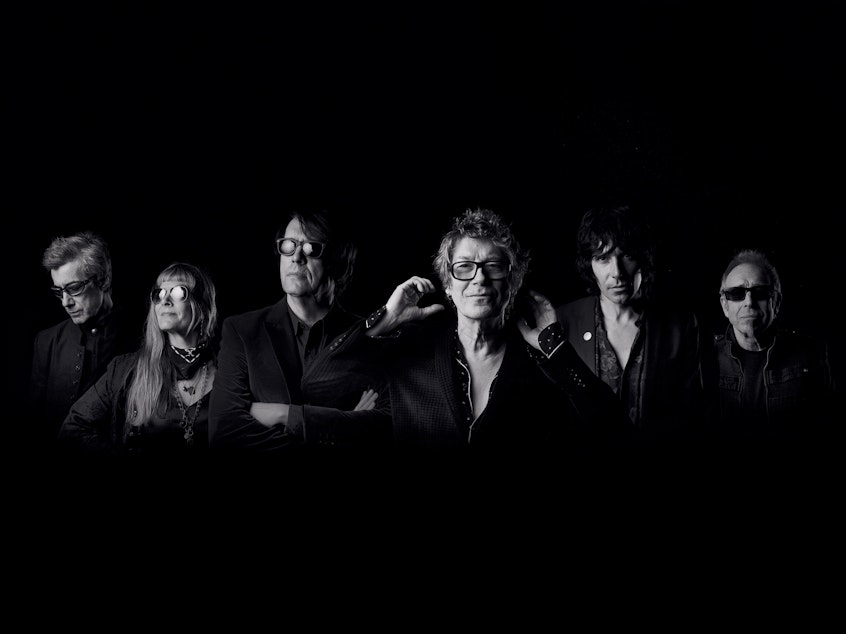The Psychedelic Furs' Richard Butler On The Band's First New Album In 29 Years

With soaring synths, spiked hair and studded leather jackets, the Psychedelic Furs were the quintessential '80s rock stars. But once the '80s ended, so did the band. Now, 29 years after the group's last album, the Psychedelic Furs is back with a new record called Made of Rain. Singer Richard Butler says this time, the band made it on its own terms.
"Back in the '80s, it was the old treadmill of make a record, do a tour, make another record, do a tour," he says. "And this was — clearly, taking 29 years — it was up to us."
Butler talks about the beginning of the band, before the music videos and sold-out stadiums, and finding inspiration in early punk music and a legendary Sex Pistols show in the spring of 1976.
"When they appeared onstage, we'd never seen so much intense anger," Butler says. "I walked away from it blown away by it."
"I'd wanted to make music a long time, but I wasn't personally a musician and I didn't see a way into doing that until punk rock came along," he continues. "And I thought 'Yeah, you can buy or borrow a guitar and go out and do what you can.' You didn't have to be a fantastic musician. That gave me a way in."
Sponsored
NPR's Ailsa Chang spoke with Richard Butler about drinking backstage during the band's heyday, its fan base before and after the song "Pretty In Pink" was used in the John Hughes movie and its journey back to making new music. Listen in the audio player above, and read on for an excerpt of the interview on the Psychedelic Furs coming back together again.
Ailsa Chang: Well, in 1991, The Psychedelic Furs decided to part ways. Tell me why. What happened?
Richard Butler: We kind of lost direction I suppose, in the late '80s. I didn't want to go in the studio with the same bunch of guys and make the same-sounding record. I felt like I knew what it was going to be like and I knew what the work process was going to be like, and I felt like I even knew what it was going to sound like. And I didn't want that. I wanted a break from that.
What does it feel like to see your first album in 29 years coming out now?
It's exciting. I feel it's a great record and I'm very proud of it. It feels like I spent 25 years saying "Why make an album?" and then the last four years thinking "Why not make an album?"
Sponsored
What made you guys decide "let's do this again" after three decades?
The band was sounding really fantastic live. We really were a very cohesive unit. We didn't say we wanted to sound like this part of the Psychedelic Furs or that part of the Psychedelic Furs or we wanted to sound like the Psychedelic Furs from 1982 or whatever. It just felt like "Why don't we write a record? This band is as good as it ever sounded."
Even though you say that you guys didn't intentionally try to recreate anything you guys did in the '80s, there is a lot on this album that's reminiscent of your music from the '80s. Also your music was featured on the show Stranger Things, which is set in the '80s; it's been featured in the movie Call Me By Your Name, which also took place in the '80s. There does seem to be this resurgence now of nostalgia for the '80s and '80s music. I'm curious, what do you think? What's going on with us? Why are we hearkening back to the '80s?
Why are we looking back? I don't know. These days, there's not a lot of rock and roll going on. People who love rock and roll are kind of going back to those days — the '80s, '90s, even the '70s, '60s — all of those decades were a great time for rock and roll. This isn't a great time for rock and roll, and I think people who miss that and love that are perhaps looking back. [Copyright 2020 NPR]

